Polly Rosenwaike's stories give an intimate glimpse into the contexts of motherhood
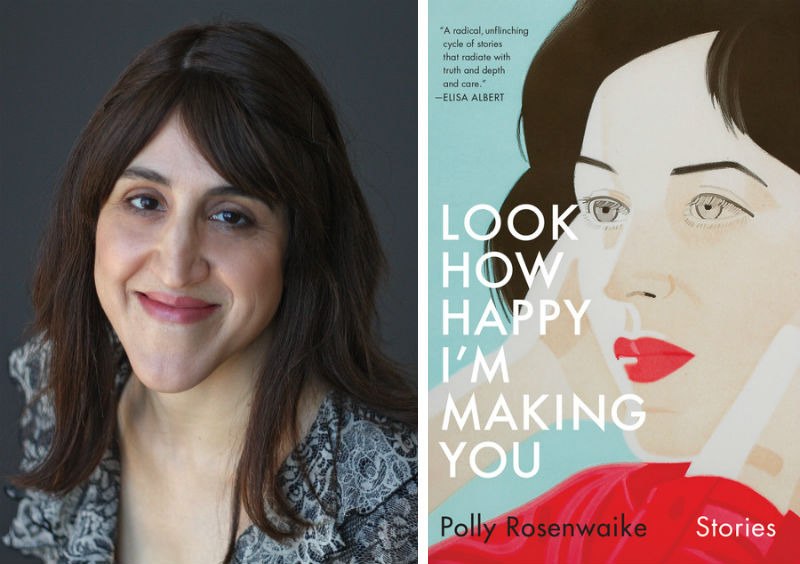
This story was originally published on March 29, 2019.
Women who want babies. Women who do not. Women who try hard for a baby, and women who easily become pregnant. Women who lose a baby, and women who have one.
These women populate the stories in Look How Happy I’m Making You, the debut collection by Polly Rosenwaike. Efforts to conceive and be mothers -- and the effects of those efforts on these women -- engage them.
Rosenwaike’s stories, however, do not only center on the processes and acts of conceiving, birthing, and parenting. This collection moreover illustrates the complexities of the feelings and relationships surrounding motherhood and the wish for it.
Rosenwaike draws inspiration from her own experiences as a mother and often works from branches of the Ann Arbor District Library. A resident of Ann Arbor, she is the fiction editor of Michigan Quarterly Review, is widely published in literary magazines, reviews books, teaches at Eastern Michigan University, and has two daughters with her partner, poet Cody Walker.
Rosenwaike will read and discuss Look How Happy I’m Making You at Literati Bookstore Wednesday, April 3, at 7 pm. She answered questions about life in Ann Arbor and her new collection.
Valencia Robin’s poetry collection "Ridiculous Light" spans time, space, and seasons -- from Milwaukee in the 1960s to Ann Arbor in the 1990s
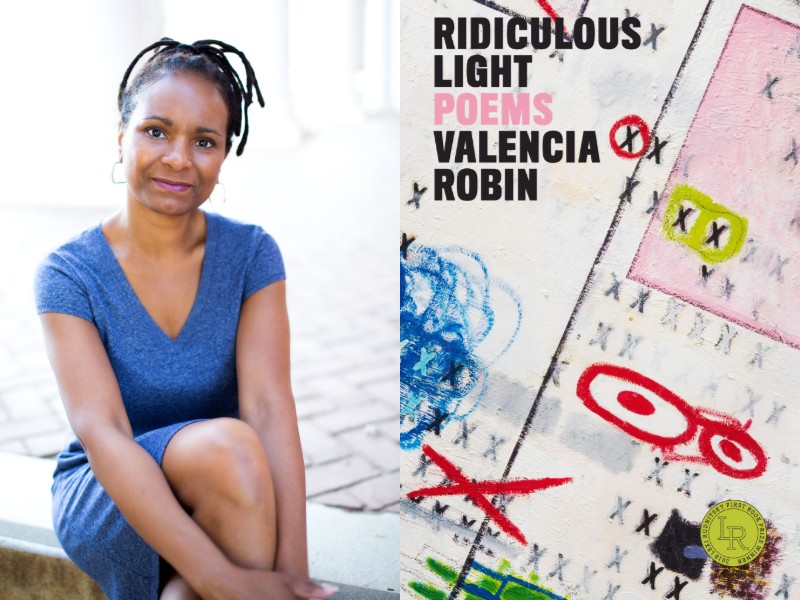
This story originally ran August 12, 2019.
Valencia Robin’s new poetry collection, Ridiculous Light, spans time, space, and seasons -- from Milwaukee in the 1960s to Ann Arbor -- and offers moments of distinct observations. The speaker invites readers into specific recollections and, within them, shares not just what happened but vivid descriptions and sublime reflections on the natural world, people, identity, and experiences.
A poet and painter, Robin is one of the founding members of GalleryDAAS at the University of Michigan. She now lives in Charlottesville, Virginia.
She will return to Ann Arbor to read at Literati Bookstore on Friday, August 16, at 7 pm, and Pulp interviewed her before her visit.
Two new books by Ander Monson consider the West, Midwest, gun violence, and extreme situations
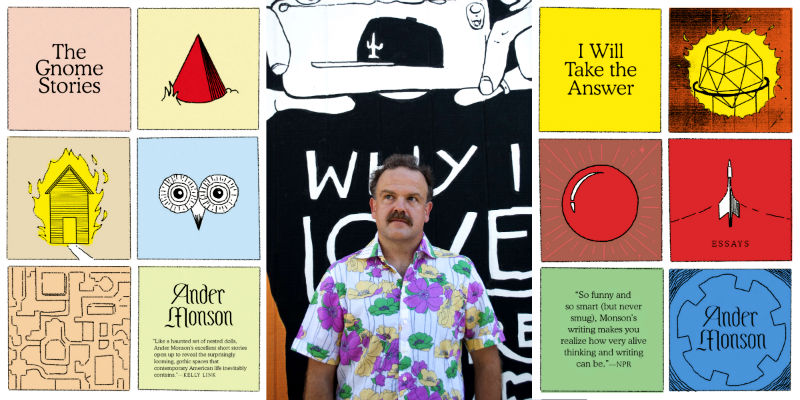
Ander Monson, a native of Michigan who lives in Arizona, has not one but two new books that were published this year.
His book of essays, I Will Take the Answer, begins with an account of exploring storm sewer tunnels underneath Tucson and concludes with a reflection on filming a ceremony with an infrared camera. In between, the essays span gun violence, rivers, mines, the Midwest, the Upper Peninsula, music and mixtapes, a Renaissance festival, a reflection on “I,”, and holiday lawn decorations. There is also a mention of the Sea Shell City Michigan’s Man-Killing Giant Clam.
These essays contemplate our relationship to the past and our memories alongside who we are now, what it all may mean, and what the future may bring. One essay called “Facing the Monolith” reflects on how a palm does not survive when transplanted and determines that:
Removed from our worlds, our histories of self, the things and songs we love, our spectacles or the spectacles we have become, the outlines of our lives -- that constant backward looking, searching for what we might contain or in what we are contained—we might well disappear.
The extent that history and self and the world around us are interconnected shapes our realities, suggests Monson. Yet, despite our reliance on our individual collections of history and memory, they do not guarantee security. Monson writes, “I consider, as if floating above some other northern city, the sprawling of the lit-up interstates as fathers drive their children home through snow on winter nights, thinking themselves safe. What is safety, I wonder, when at any moment our life could be torn apart?”
This idea of upending a life is contextualized by Monson’s discussion of the 2011 Tucson shooting in which US Representative Gabrielle Giffords was injured. At the tragedy’s memorial outside the grocery store where it occurred, one of the essays aptly depicts that, “I find a balled-up piece of lined yellow paper. I do pick it up. I open it. a shopping list with six items: ‘triskets, jello, oranges, mayo, peanut butter, sm. eating apples.’ It’s not a note or prayer. Sometimes it’s not clear what the difference is between these kinds of documents.” While this book just came out this year, I sense these sturdy yet vulnerable essays will hold up over time and that I’ll find myself rereading them or returning to them in thought in the future.
Monson’s other book, The Gnome Stories, is a collection of short stories that are, in some ways, a counterpart to the essays. Reading the two books in quick succession may have influenced me, but the stories do present similar situations examined through the lens of fiction, while also standing alone. They investigate how people will respond to unique circumstances, ranging from shooting a burglar to working in a cryogenic facility or a radical weight-loss clinic. Characters find themselves both at extremes and reaching toward extremes at the same time as wondering what defines them, how they can change, and, “[w]hen will it be enough?” As one character who maps people’s memories reflects, “[m]y father once asked me: What are you willing to wreck to get what you want?” The question moves beyond the hypothetical when this character and others undergo this test. Through clear prose and introspective characters, the stories reveal strengths and weaknesses of these characters, as well as question which is which.
Monson’s reading in Ann Arbor is rescheduled as an At Home with Literati event via Zoom video conferencing on Tuesday, April 14, at 7 pm, when he will speak along with author Deb Olin Unferth.
I interviewed him by email, and we talked about his books, connection to the Midwest, and how the pandemic has affected his plans.
Megan Giddings' debut novel investigates what's really going on in a research study in a small Michigan town
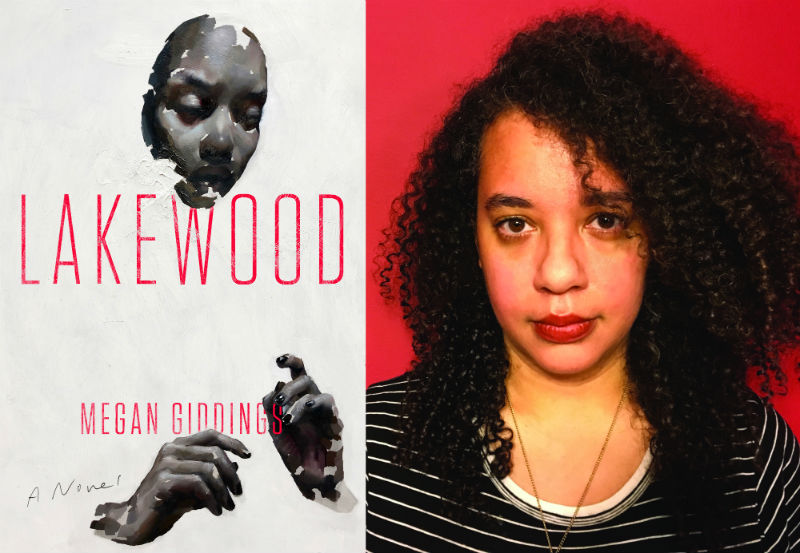
The town of Lakewood, where you don’t know what’s part of a research study and what’s separate or real life, provides the setting for a new book of the same name by Megan Giddings, a University of Michigan graduate. This shifting ground calls into question what is true in the experiences of the main character, Lena Johnson, who moves to Lakewood for the promise of good pay and health insurance (albeit as a subject in the research study). A dystopian novel apt for the times, Lakewood moves quickly and constantly probes what lines people will hold or cross for the sake of science or their family.
Early on, Lena mulls over a foretelling comment by another character:
To make life easier, we have to agree there is no such thing as normal, the doctor had said while typing on her laptop. If you think too much about how things should be, you forget how they are.
As the novel unfolds and Lena joins the study, supposedly on memory and funded by the government, she has to grapple with whether the increasing physical and mental side effects of the tests are worth it. She furthermore undergoes surveillance, notices that the town is predominately white while research subjects are black, and must endure extreme circumstances, including taking unidentified medications. Whether Lena will forge ahead with participating and if the purpose or outcome of the research will be revealed become the questions that propel the novel.
Giddings was scheduled to speak Wednesday, April 1, at Literati Bookstore, and the event was canceled owing to COVID-19. I interviewed her by email as planned prior to the pandemic.
Erin Craig's fantasy-horror YA novel "House of Salt and Sorrows" tells the mysterious story of 12 sisters facing a deathly curse
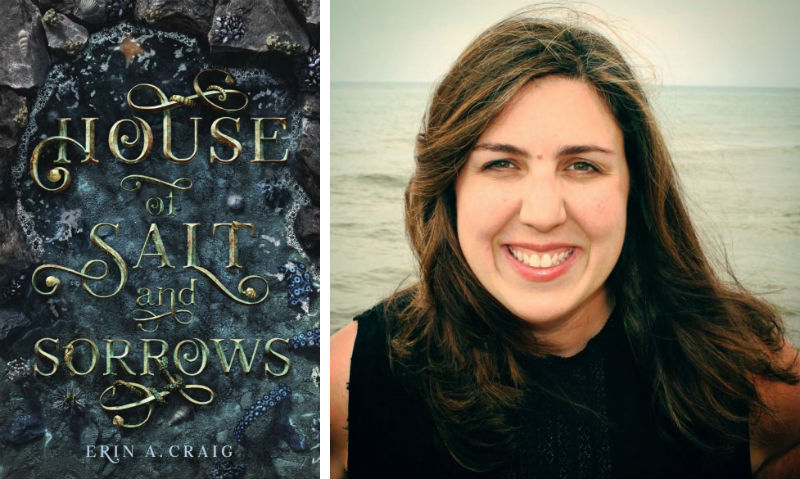
House of Salt and Sorrows, a fantasy-horror young adult novel, opens with a funeral and a grim question: which of 12 sisters will be the next to fall prey to a supposed curse and die?
This first novel by Erin Craig, a graduate of the University of Michigan, stars a strong female protagonist, Annaleigh Thaumas, who is the sixth of her siblings. As she ponders the latest death -- that of her sister Eulalie, who fell from a cliff -- Annaleigh imagines, "her falling through the air, the look of confusion on her face turning to horror as she realized that there was no escaping this, no way to go back and make it right.”
Annaleigh, however, begins to suspect that foul play is at fault for her sisters’ deaths, instead of a curse. She becomes determined to figure out who is behind the madness before more tragedies overtake her family. Eulalie’s sudden demise prompts Annaleigh to consider that, “Though it was all conjecture, I felt I was on the right path. My sister’s death had not been an accident. It had not been part of some dark curse. She was murdered. And I was going to prove it.”
Following Annaleigh on her search for answers becomes as tempestuous as the seas on which the Thaumas family lives. Along the way, Annaleigh falls in love, dances at balls both magnificent and grotesque, and sees ghosts and gods.
Throughout House of Salt and Sorrows, it becomes increasingly clear that people and places are not what they seem at first glance -- or even at second glance. Whether it all can be righted again is an ongoing question as tragedies continue to befall the Duke of the Salann Islands and his many daughters.
Craig’s novel was published last year. She currently lives in Memphis, Tennessee, and is planning a return to her Michigan roots. I interviewed her by email about her connection to Ann Arbor, opera background, writing process, reading, and upcoming plans.
"Unnecessarily Beautiful Spaces for Young Minds on Fire" chronicles 826's mission to empower school-age writers
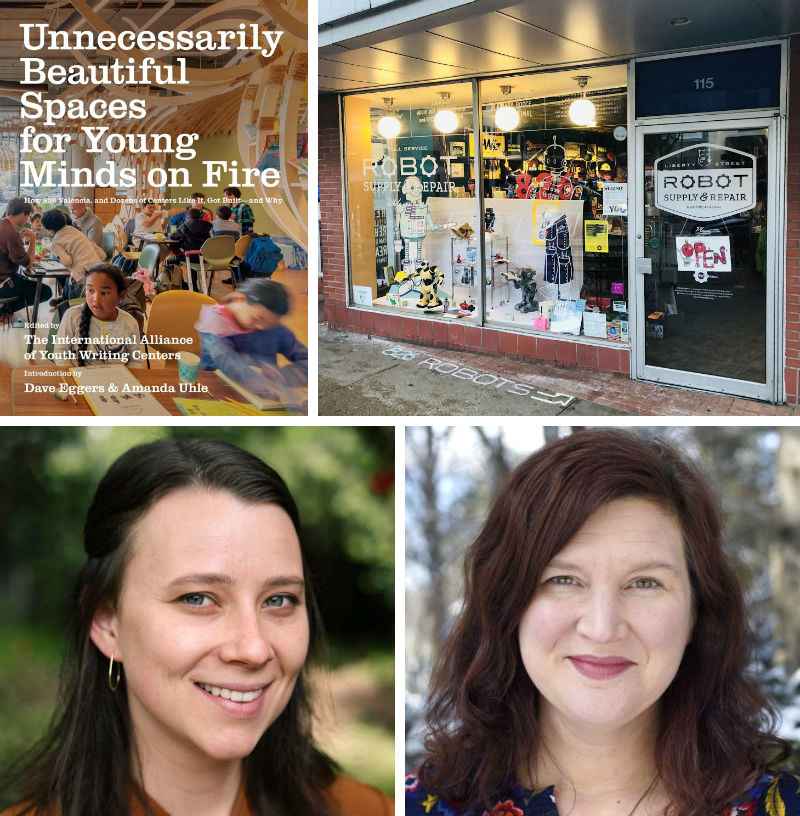
A time travel mart. An apothecary for the magical. An alien supermarket. A mid-continent oceanographic institute. A secret agent supply. A place for pirates.
These places are just a few of the many storefronts -- complete with their own imaginative products -- that serve as portals to literary writing spaces for youth around the world.
The one in Ann Arbor is known as the Liberty Street Robot Supply & Repair, and the one in Detroit is called the Detroit Robot Factory.
The inspiration for these quirky businesses and equally creative writing centers comes from the brainchild of Dave Eggers and Nínive Clements Calegari, who together started the first 826 Valencia location -- the pirate supply shop -- in San Francisco, though not with that intent at the beginning. When renting a building in 2002, they’d planned for offices for the nonprofit publishing company, McSweeney’s, along with an area for tutoring local youth.
But the building’s zoning was for retail, and consequently, the pirate supply shop was born to fulfill the criteria.
Ann Arbor-raised Adam Falkner returns with his new poetry collection, "The Willies," and a better sense of his authentic self
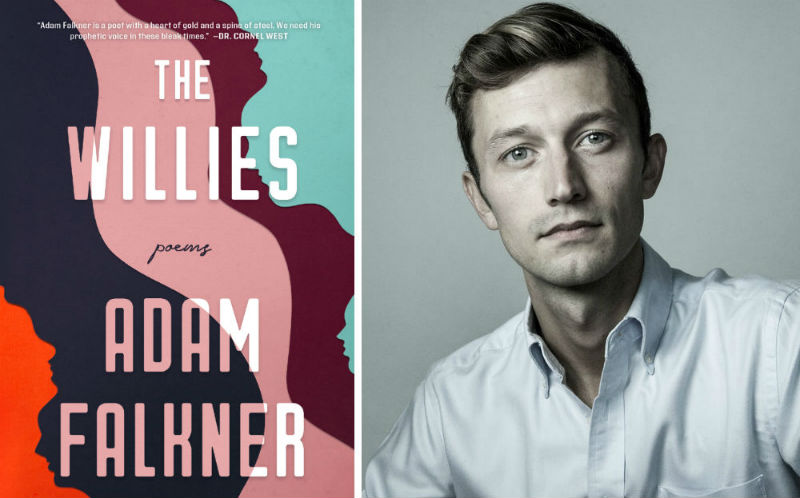
Adam Falkner probes the paradox of how hard it is to be yourself sometimes in his new poetry collection, The Willies. One of the poems, “Let’s Get One Thing Halfway Straight,” exposes this emotional labor in the following lines:
The not-so-funny thing about spending a
life proving you aren’t something is that any story that isn’t
the story is survival or more like a brick for laying until the
wall is high enough that you’re safe inside and you wake up
and say whoops whose house is this who did I hurt to get
here and is it too late to call for help.
The real risk lies not in being yourself but rather in suppressing yourself based on people’s opinions or your perceptions of how you’re supposed to be. Falkner finds this identity issue to be a common experience to which many readers relate and also one that is very personal to his life.
“There’s something deeply universal about the idea of being closeted and longing for something bigger than this version of yourself," Falkner said. "That fear associated with who we might become if we don’t ask ourselves who we want to become is a very real thing for everyone.”
Writer, poet, and funeral director Thomas Lynch examines life and death in "The Depositions," a collection of new and selected essays
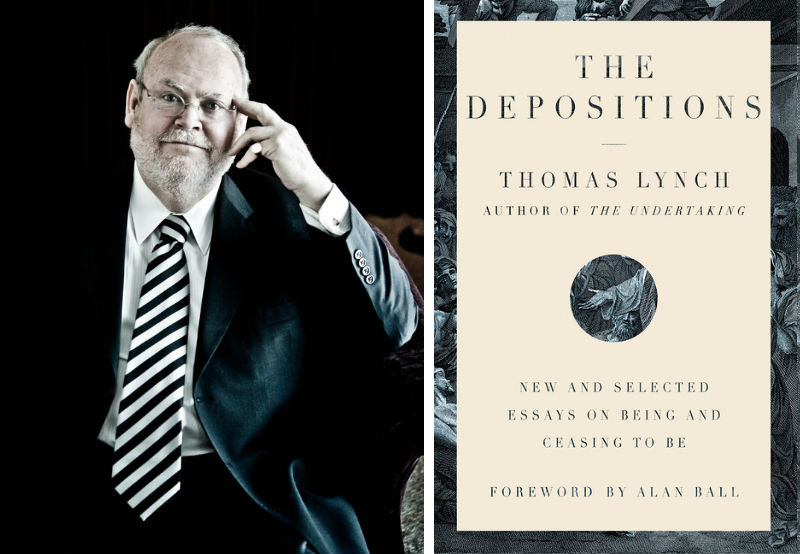
Essayist and funeral director Thomas Lynch writes, “By getting the dead where they need to go, the living get where they need to be.”
That quote forms the first sentence of “The Done Thing,” the last essay in his recent collection, The Depositions: New and Selected Essays on Being and Ceasing to Be.
For years, Lynch has been in the business of the former and has reflected on the latter, as well as the former, through writing. He stands clear on many things about death, including that funerals serve the living and that the dead don’t care.
The Depositions: New and Selected Essays on Being and Ceasing to Be sifts through these subjects with pieces from his earlier four books of essays, plus new ones that consider the author’s state of affairs.
Lynch’s philosophical insights and candid facts about death all orbit around a universal truth appearing in the last sentence of the same paragraph containing the earlier quote:
Women of color in Washtenaw pen poetry anthology, "Love & Other Futures," as part of the Untold Stories of Liberation & Love project
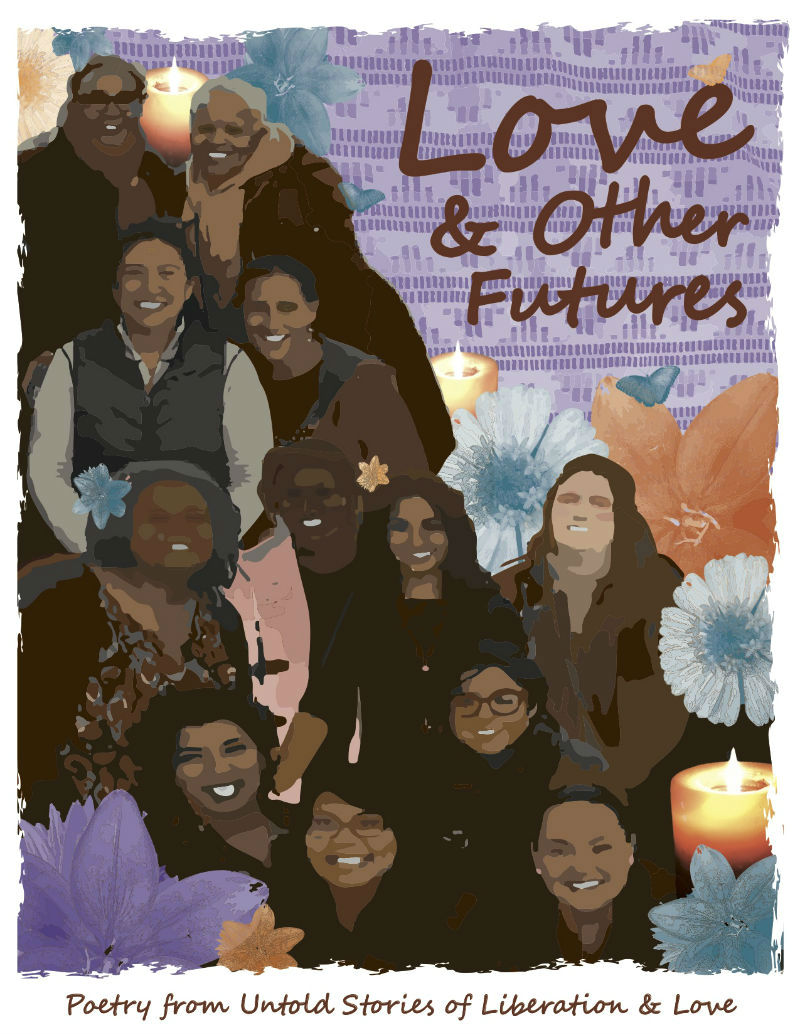
A writing space created for and led by women of color in Washtenaw County.
That’s what the five organizers of the Untold Stories of Liberation & Love project sought to build and have been creating with the help of an Ann Arbor Area Community Foundation grant. They held three Ypsilanti-based workshops with local women of color and produced a poetry anthology, Love & Other Futures, by those women in 2019.
Planning is underway for this year, the second of two years of funding. Carrying out this vision has been a means to engage in community and leadership that is deliberately disruptive to writing here.
“We’re disrupting the idea that poetry is an elite thing," said poet and organizer Julie Quiroz. "We’re disrupting the way that our society turns art into a competitive, individualistic process, rather than a way to build community. We’re challenging our county to recognize the powerful creative leadership that already exists among women of color here."
Former U-M professor Carmen Bugan's new poetry collection, "Lilies From America," relates nature and the human experience

Poet Carmen Bugan has gone through many transitions, from her tumultuous childhood in Romania to moving to the United States. Still, she writes, “The road to a better life has not yet been planned, / Everyone is waiting for an architect.” Both uncertainty and possibility hover in those lines, which appear in a recent poem called “New Life.” That poem is among a new selection in Lilies From America: New & Selected Poems 2004-2019.
Lilies From America starts with a poem of the same title and then covers Bugan’s three collections -- 2004’s Crossing the Carpathians, 2014’s The House of Straw, and 2016’s Releasing the Porcelain Birds -- plus new poems dating from 2016 to 2019. Calling these poems autobiographical would be an understatement; they comment on family, nature, time, love, and language (the last of which Bugan discusses in-depth on episode 18 of The RC Podcast, “Carmen Bugan ’96 and the Language of Freedom”). This new collection discloses a snapshot of the trajectory of Bugan’s life, going from early days to current sentiments, through the well-selected and illustrative poems.
Bugan’s poetry is inspired by her childhood containing the political imprisonment of her father and exile of her family, and then by her experiences in the U.S. Her writing musters perseverance and suggests ways to keep going despite change and parting and borders. Looking to nature as a parallel, the poems draw on the landscape and flora of the places significant to Bugan. In “Long Island Sound,” dated January 23, 2018, cycles of starting and ending relate to human experience, as the poet reflects:
To see again that which I knew and cherished:
The translucent lift of water and algae,
Clam shells and egg-like rosy stones,
Fluent ending in a new beginning.
Nature becomes a way of understanding what is happening to the people in the poems. The “Moon" is set on an autumn night in a room aglow with moonlight and offers this last stanza: “I felt not too far from being translated, / The same way sunlight was interpreted / By the moon face we could see.” These feelings of being seen and of also making one’s own observations permeate Bugan’s poetry, both explicitly in describing the political protests written on a typewriter in Romania by her parents, as well as in sharing transcriptions of her family’s surveillance tapes, and subtly through the surrounding environment.
Yet even as time gives way to transformations, moments emerge to hold dear, moments in which to linger. On a visit to aging parents, the poet expresses a wish to accurately capture the instant: “While the glasses empty slowly and we are grateful / That we still can have that one drink, together, / Standing in the sunshine, with the song of birds.” Identifying these memories as important, and observing them, stand alongside the history of political protest and anguish in these poems.
Bugan is based in Long Island, New York, and she was the 2018 Helen DeRoy Professor in Honors at the University of Michigan and the 2018 Dow Visiting Scholar at Saginaw Valley State University.
Bugan reads with David Cope, who is Bugan’s former teacher from Grand Rapids Community College prior to her transfer to the University of Michigan, at Literati Bookstore on January 16, 7 pm. Ahead of her visit, I interviewed her for Pulp.


































